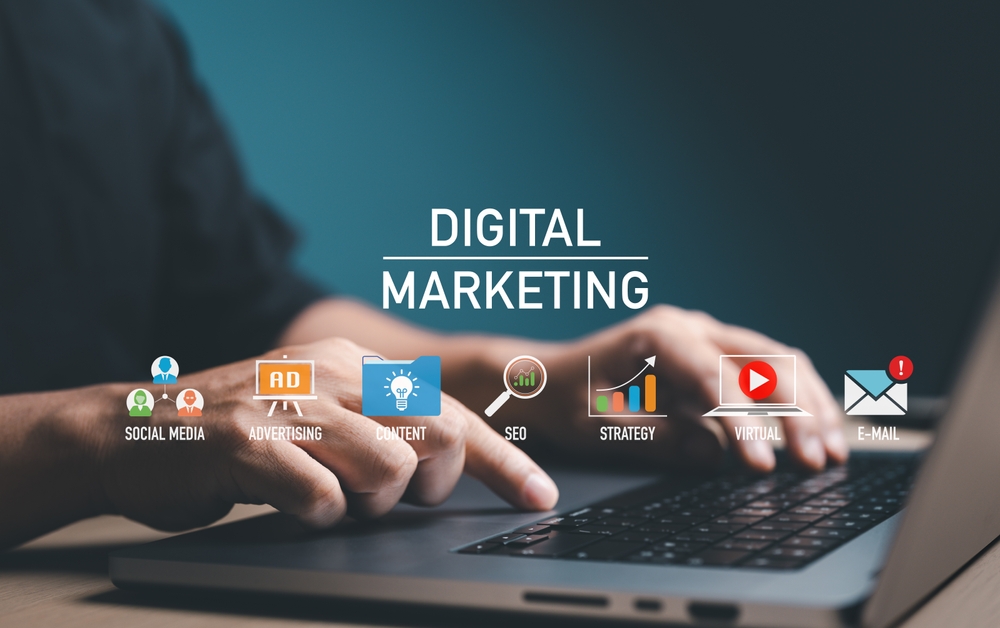In today’s digital age, universities must adapt to the ever-changing landscape of technology to remain competitive and appealing to prospective students. Digital marketing for universities has become a vital component in achieving this goal. By leveraging innovative digital marketing strategies, universities can enhance their outreach, engage with a broader audience, and ultimately boost their enrollment rates.
Understanding the Importance of Digital Marketing for Universities
Digital marketing for universities goes beyond traditional marketing methods. It encompasses various online platforms and tools that help institutions connect with their target audience more effectively. From social media campaigns to search engine optimization (SEO), digital marketing in life sciences offers universities the opportunity to reach potential students where they spend a significant portion of their time: online.
Social Media Engagement
Social media platforms such as Facebook, Instagram, Twitter, and LinkedIn have become indispensable tools for digital marketing for universities to connect with students. By creating engaging content, universities can foster a sense of community and keep current and prospective students informed about campus events, academic programs, and other important updates.
Content Creation and Sharing: Universities should focus on creating high-quality, visually appealing content that resonates with their target audience. This can include photos and videos of campus life, student testimonials, and faculty achievements. Sharing user-generated content, such as student projects and experiences, can also help build a sense of community and authenticity.
Interactive Campaigns: Interactive campaigns, such as live Q&A sessions, virtual campus tours, and social media challenges, can engage prospective students in a more personal and meaningful way. These initiatives not only provide valuable information but also create a memorable experience for participants.
Search Engine Optimization (SEO)
SEO is a critical component of digital marketing for universities. By optimizing their websites for search engines, universities can improve their online visibility and attract more prospective students. Here are some SEO strategies that universities can implement:
Keyword Optimization: Universities should conduct thorough keyword research to identify the terms and phrases that prospective students are likely to use when searching for educational institutions. Incorporating these keywords naturally into website content, meta descriptions, and headings can help improve search engine rankings.
Content Strategy: Developing a robust content strategy that includes blog posts, articles, and other valuable resources can drive organic traffic to the university’s website. Content should be informative, engaging, and tailored to the interests and needs of prospective students.
Technical SEO: Ensuring that the university’s website is technically sound is essential for SEO success. This involves enhancing site speed, ensuring mobile compatibility, and refining site navigation. An optimized website improves user experience and enhances search engine rankings.
Email Marketing
Email marketing remains a powerful tool for universities to communicate with prospective students and keep them engaged throughout the enrollment process. By sending personalized and targeted emails, universities can provide valuable information and nurture relationships with potential students.
Segmentation: Segmenting email lists based on various criteria, such as program interests, geographic location, and stage in the application process, allows universities to send more relevant and personalized messages. This focused strategy enhances the chances of engaging and converting potential students.
Automated Campaigns: Automated email campaigns can help universities stay in touch with prospective students without requiring constant manual effort. Welcome emails, application reminders, and personalized follow-ups can be scheduled to ensure timely and consistent communication.
Data Analytics and Personalization
Leveraging data analytics is crucial for universities to understand the effectiveness of their digital marketing efforts and make data-driven decisions. By analyzing data from various sources, universities can gain insights into prospective student behavior, preferences, and engagement patterns.
Tracking and Analysis: Universities should use tools like Google Analytics and social media analytics to track the performance of their digital marketing campaigns. Metrics such as website traffic, conversion rates, and engagement levels can provide valuable insights into what works and what needs improvement.
Personalized Marketing: Personalization is key to capturing the attention of prospective students. By using data to tailor marketing messages and experiences, universities can create a more relevant and engaging journey for each student. Personalized content, such as program recommendations and tailored campus visit invitations, can significantly impact a student’s decision-making process.
Conclusion
Innovative approaches to digital marketing for universities are essential in today’s competitive landscape. By embracing social media engagement, SEO, email marketing, and data analytics, universities can effectively connect with prospective students and enhance their overall marketing strategy. As digital marketing continues to evolve, universities must stay ahead of the curve and continuously explore new ways to engage and attract students in the digital age.


